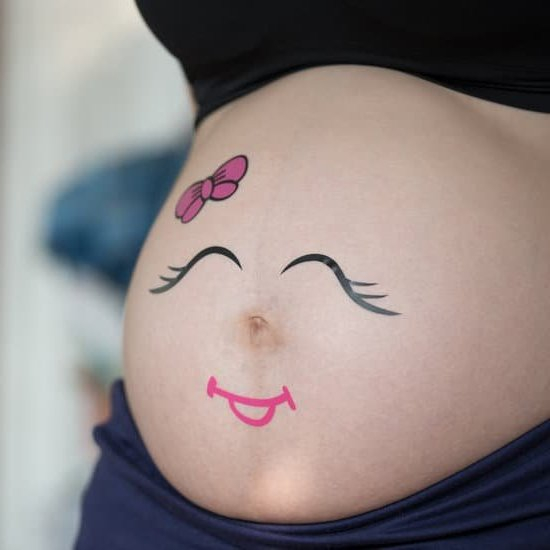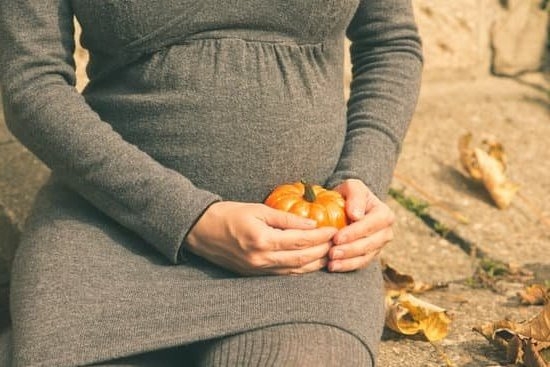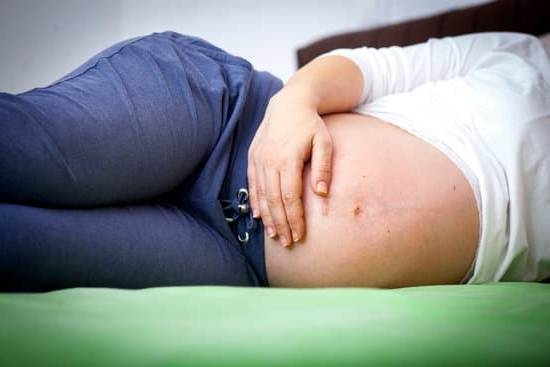Introduction to Pregnancy Tests
Pregnancy tests are designed to determine the presence of a hormone, human chorionic gonadotropin (hCG) in urine or blood. A positive result on a pregnancy test usually confirms that an individual is pregnant. The hCG hormone is produced when an egg is implanted in the uterus and rises rapidly over the first few weeks of pregnancy.
The earliest a pregnancy test will show positive depends on how sensitive the test is. For example, some tests can detect hCG as early as 7 days after conception (5-6 days after ovulation), while others may require up to 14 days before they show positive results. Generally, the more sensitive the test, the sooner it will detect hCG levels in your system and confirm if you’re pregnant or not. It’s important to note that home pregnancy tests have limits – most have reported accuracies hovering around 95%, though there isn’t much research confirming this data point for all brands. Additionally, some medical conditions can cause false positives or negatives on a home pregnancy test and should be taken into consideration. Finally, it’s highly recommended that any person performing at-home tests consult with a licensed OBGYN or physician prior to taking any actions based on the results of their testing.
How Do Pregnancy Tests Work?
Pregnancy tests work by detecting the levels of human chorionic gonadotropin (hCG) hormones in a woman’s urine or blood. Hormone levels increase rapidly during the first trimester of pregnancy, which makes them ideal markers to check for pregnancy.
Most early home pregnancy tests are designed to detect hCG levels around 11 days after conception. This is usually five days before the expected date of a missed period, meaning it can show a positive result before you even miss your period. The sensitivity level of these tests can vary greatly depending on the make and model, so be sure to read the instructions carefully before use.
Understanding Hormone Levels That Affect Pregnancy Test Results
The earliest a pregnancy test will show positive is usually around the time of your missed period, or 2-3 weeks after ovulation. How accurately and quickly a pregnancy test can detect hCG (human chorionic gonadotropin) in your urine is dependent on the sensitivity of the test and the level of hormone present. The higher your hCG levels, the more likely you are to get an earlier positive result.
HCG is produced by cells in the placenta shortly after the fertilized egg implants into your uterus wall. As time goes on, those cell multiply and produce more and more hCG, building up to detectable levels within several days. Early on, HCG levels slowly increase which is why it may take a few extra days for a home pregnancy test to show that you are pregnant.
The most important factor determining how early an at-home pregnancy test can show positive is its sensitivity to hCG. Generally speaking, the more sensitive a test is – such as those designed for early detection – the sooner it can detect hCG in your urine. However remember that even highly sensitive tests cannot provide totally accurate results until close to or after your miss period so always confirm with a follow up bloodtest done by your doctor if you suspect you may be pregnant.
How Soon Can a Pregnancy Test Show Positive?
The earliest a home pregnancy test can detect a positive result is about six days before your missed period. Most pregnancy tests, however, are not accurate until one week after your missed period or fourteen days from conception. However, it’s important to note that the levels of hCG (human chorionic gonadotropin) hormone required for a positive pregnancy test in early stages varies from woman to woman and commercial kit to kit. Therefore, waiting for one or two weeks beyond the expected time of your menstrual cycle before taking the test will help ensure greater accuracy. Some newer forms of tests are now much more sensitive and can give you an accurate result four days before your missed period. It is also important to follow all instructions carefully as this may affect the accuracy of the results.
Differentiating Between Different Brands of Tests
The earliest a pregnancy test will show positive is typically 7-10 days after conception and is dependent on the sensitivity of the brand of the test. Drugstore pregnancy tests range in their sensitivities, meaning that some brands can pinpoint hCG (which is the hormone present when you are pregnant) earlier than others. High sensitivity tests will often detect hCG much sooner than other kinds – sometimes 5 days after conception or even earlier. However, it’s important to note that home pregnancy tests are designed to detect hCG concentrations at a certain threshold which varies between different brands – meaning an early negative result might not indicate whether or not you are pregnant. It might be beneficial to wait and retest with a more sensitive test if your results do not give you an accurate reading.
Knowing When to Retest
The earliest a home pregnancy test (HPT) will usually be able to detect a positive result is about one week after missing your period. Most tests state that you can begin testing any time between the first day of your missed period and up to five days after. However, because it takes up to five or six days after ovulation for the human chorionic gonadotropin (hCG) hormone to build up in your body, it may be 10 or more days after conception before the hCG concentration rises high enough to detect pregnancy. So while it is possible to get a positive result as early as two weeks after conception, this isn’t typical.
It’s usually a good idea to repeat the test in one week if your initial test is negative, even if you’ve only missed your period by one or two days. That’s because hCG levels vary from day to day, so if you don’t wait, it’s possible that the hormones may not have had time to accumulate sufficiently in the urine for a positive result significant enough for detection. Additionally, some women may experience irregular periods and/or spotting due to implantation bleeding around that time which can confuse and delay recognition of being pregnant until later on when other signs become more obvious.
Advantages & Disadvantages of Taking an Early Pregnancy Test
Advantages of taking an early pregnancy test include getting an early confirmation that you are indeed pregnant and being able to plan in advance for what to do next. Other advantages include having peace of mind and being able to seek medical advice at the earliest possible opportunity.
Disadvantages include the potential for false results. As most home tests take place very soon after conception, they may provide inaccurate readings if taken too soon or not used properly. Additionally, in some cases a test can give a false positive due to other hormones being present. Such results can cause unnecessary anxiety and anticipation in the event of a negative result later on. For this reason it’s best to wait until recommended before taking a pregnancy test for more accurate results.
Telling Family & Friends Your Test Results
The earliest a pregnancy test can accurately detect a positive result is 10 days after conception. If taken before then, false positives can occur due to high levels of hCG in the body from other causes. Therefore, it is recommended to wait until at least two weeks after conception has occurred so that an accurate result may be obtained. It is important to note that even if a positive result does show up on the pregnancy test very early on, this does not necessarily mean that you are pregnant – further tests should always be performed as soon as possible to confirm the result.
When it comes to telling family and friends your test results, this decision is completely up to you and cannot be made for you. How much information you wish to share and who you choose to share with will depend on personal preference. Once you have a clear answer and feel comfortable sharing your news, remember that although some may be surprised or taken aback initially, bringing close family and friends into your plans will help support you throughout your journey of pregnancy preparation and beyond.
Conclusion
The earliest a pregnancy test will show positive is typically around 10 days after conception. This is because it takes the body around that amount of time to start producing human chorionic gonadotropin (hCG), which is the hormone that most home pregnancy tests measure. This hormone increases rapidly in a woman’s body in the early stages of pregnancy, and is typically detectable with a home pregnancy test after 10 days past conception. Additionally, for more accurate results, it might be best to wait about 14 days after conception before taking a pregnancy test.

Welcome to my fertility blog. This is a space where I will be sharing my experiences as I navigate through the world of fertility treatments, as well as provide information and resources about fertility and pregnancy.





